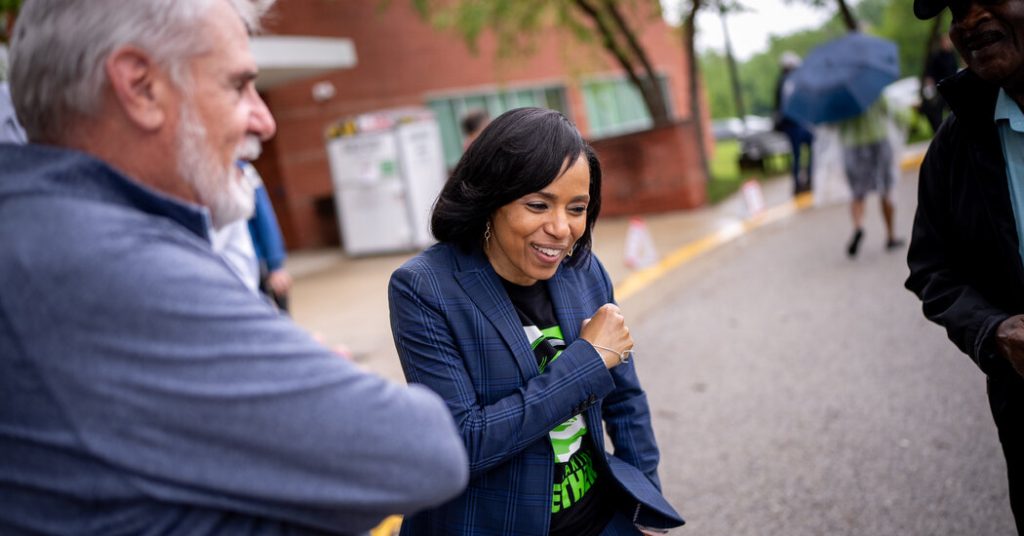Hundreds of thousands of voters in Maryland, West Virginia, and Nebraska participated in primaries that indicated a desire for moderation, achievement, and diversity, while rejecting the influence of money in politics. In Maryland, Representative David Trone lost the Senate Democratic primary to Angela Alsobrooks, who aims to become the third Black woman elected to the Senate. Despite Trone spending over $60 million, Alsobrooks, the county executive of Prince George’s County, emerged victorious in a showdown between money and history marked by Trone’s wealth and Hogan’s entry as a Republican candidate.
In Maryland’s Third House District, Capitol Police officer Harry Dunn, known for his resistance against the January 6th Capitol attack, was defeated in the Democratic primary by State Senator Sarah Elfreth, who had legislative experience and a Democratic political record. In the GOP, House primaries in Nebraska and West Virginia indicated moderation prevailing over a far-right shift within the party, as incumbent Representative Don Bacon in Nebraska’s swing district and Representative Carol Miller in West Virginia’s safe Republican seat triumphed over conservative challengers.
Although President Biden and former President Trump are the likely nominees for their parties in the 2024 election, some opposition was visible in the primaries. In Maryland, around 10% of Democratic voters expressed their dissent through an “uncommitted” vote, possibly in response to Biden’s stance on the conflict in Gaza, while in West Virginia, 20% of Democratic voters opted for alternative candidates. Additionally, former Governor Nikki Haley received a significant percentage of Republican votes despite no longer being in the race, raising questions about the impact of these votes in the general election and the potential influence on polling data.
The political landscape in these states reflects a complex interplay of factors including historical significance, grassroots support, and ideological alignment. Candidates with strong personal narratives like Harry Dunn and David Trone encountered challenges in campaigns against opponents with established legislative backgrounds like Sarah Elfreth and Angela Alsobrooks. The outcomes of these primaries speak to broader themes of political moderation, diversity, and voter engagement in the face of changing norms and dynamics within the Republican and Democratic parties.
Ultimately, the results of these primaries offer insight into the evolving political landscape in Maryland, West Virginia, and Nebraska, where a mix of historical context, ideological positioning, and voter sentiment shapes the outcome of key races. The prominence of candidates like Angela Alsobrooks, Carol Miller, and Don Bacon underscores the importance of experience, authenticity, and community engagement in winning over voters and securing a place in the political arena. The upcoming general elections will further test these dynamics and determine the direction of these states and their representation in Congress.


